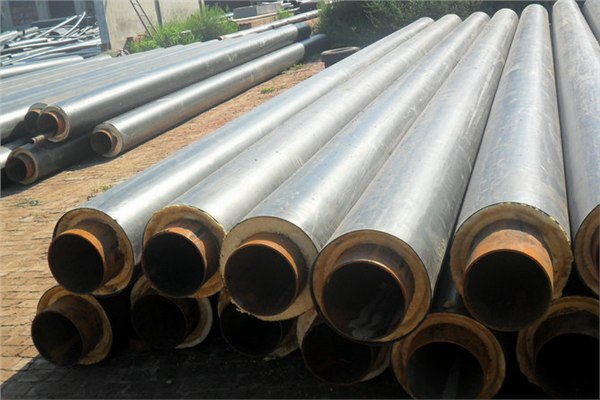Imagine a world where transporting hot or cold fluids through pipes happens seamlessly, with minimal heat loss or gain. This world is made possible by the Pre-Insulated Pipe Market, a sector dedicated to developing and supplying insulated piping systems prefabricated in factories. Unlike traditional methods of on-site insulation, pre-insulated pipes offer superior thermal performance, faster installation times, and significant long-term benefits. Widely used in district heating and cooling systems, oil and gas pipelines, and industrial applications, pre-insulated pipes ensure efficient fluid transportation while minimizing energy waste. Driven by rising energy costs, growing urbanization, and increasing focus on sustainable construction, the Pre-Insulated Pipe Market is experiencing significant growth. Let’s explore the diverse applications of pre-insulated pipes and delve into the exciting trends shaping this dynamic market.
Applications: Ensuring Efficient Fluid Flow Across Industries
Pre-insulated pipes offer a versatile solution for various applications requiring efficient thermal management:
- District Heating and Cooling (DHC): These systems distribute hot or chilled water to multiple buildings from a central source. Pre-insulated pipes minimize heat loss or gain during transport, ensuring efficient delivery of conditioned water for space heating and cooling.
- Oil and Gas Pipelines: Transporting oil and gas over long distances requires maintaining specific temperatures to prevent solidification or excessive pressure buildup. Pre-insulated pipes offer superior thermal protection for efficient transportation of these fluids.
- Industrial Processes: Many industrial processes involve transporting hot or cold fluids within facilities. Pre-insulated pipes minimize energy waste and maintain consistent temperatures for various industrial applications.
- Chilled Water Systems: In buildings with central air conditioning systems, pre-insulated pipes efficiently transport chilled water to air handling units, ensuring optimal building cooling.
- Cryogenic Applications: For transporting extremely low-temperature fluids like Liquefied Natural Gas (LNG), pre-insulated pipes with specialized insulation materials minimize heat gain and ensure safe and efficient transportation.
Get Exclusive Sample Copy of the Report: https://www.futuremarketinsights.com/reports/sample/rep-gb-11284
A Spectrum of Pre-Insulated Pipe Solutions: Catering to Diverse Needs
The Pre-Insulated Pipe Market offers a variety of piping systems with different insulation materials, jacket materials, and pipe sizes to suit specific project requirements:
- Insulation Materials: Common insulation materials include polyurethane (PU) foam, mineral wool, and elastomeric rubber, each offering varying thermal performance and suitability for different temperature ranges.
- Jacket Materials: The outer protective layer of pre-insulated pipes can be made from high-density polyethylene (HDPE), steel, or fiberglass, depending on the application’s needs for durability, corrosion resistance, and mechanical strength.
- Pipe Sizes: Pre-insulated pipes are available in a wide range of diameters to accommodate various flow rates and project needs.
The Pre-Insulated Pipe Market is poised for substantial expansion in the coming years, with forecasts indicating a potential valuation of USD 10.6 Billion by 2033. This growth trajectory is underpinned by a projected Compound Annual Growth Rate (CAGR) of 5.7%.

Opportunities for Growth: A Market Keeping Up with the Times
The Pre-Insulated Pipe Market is experiencing a surge in popularity driven by several key trends:
- Rising Energy Costs: As energy costs continue to rise, building owners and facility managers are seeking solutions to minimize energy waste during fluid transportation. Pre-insulated pipes offer significant energy savings compared to traditional uninsulated piping systems.
- Growing Urbanization: The increasing concentration of people in cities necessitates efficient district heating and cooling systems. Pre-insulated pipes are a vital component of these systems, enabling efficient building temperature control.
- Focus on Sustainable Construction: Sustainable building practices prioritize energy efficiency. Pre-insulated pipes contribute to sustainability by minimizing heat loss or gain during fluid transportation, reducing overall energy consumption.
- Advancements in Insulation Materials: Continuous development of high-performance insulation materials with superior thermal conductivity is leading to even more efficient pre-insulated pipe systems.
- Focus on Prefabricated Construction: The construction industry is increasingly embracing prefabricated components for faster project completion times. Pre-insulated pipes contribute to this trend by offering prefabricated and ready-to-install piping solutions.
Get Full Report Now: https://www.futuremarketinsights.com/checkout/11284
